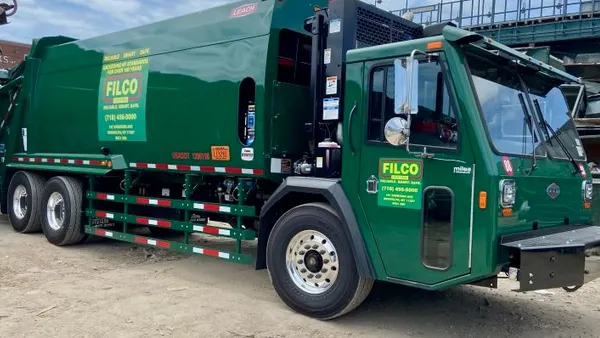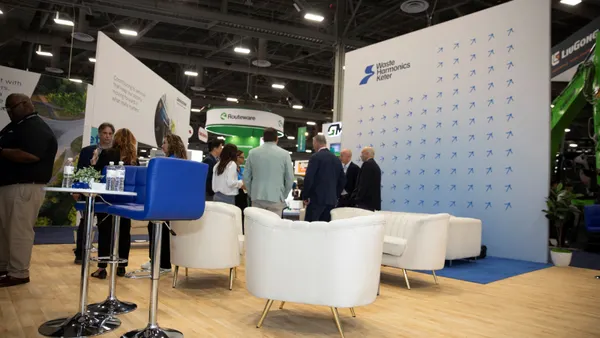UPDATE: In a unanimous vote on Oct. 17, Albuquerque's City Council decided to require a zoning change for the construction of a proposed transfer station, as reported by the Albuquerque Journal. Mayor Richard Berry's administration maintains that the facility is allowed under the area's "light manufacturing" zoning, though a local land-use hearing officer disagreed. The council's decision can still be appealed to the state District Court.
Dive Brief:
- A proposed transfer station in Albuquerque, NM has hit a delay after a land-use hearing officer recommended that the city council require a zoning change before it can be built, as reported by the Albuquerque Journal.
- If this recommendation is adopted it would reverse a June ruling from the city's code compliance manager that the station is a "permissive activity" in the light manufacturing area. A zoning change would require a public hearing and delay plans for construction.
- Mayor Richard Berry's administration supports the project and says it would save $2.5 million to $4.5 million per year in fuel costs by reducing trips to the local landfill.
Dive Insight:
Neighborhood residents who have raised concerns about odor and traffic applauded the potential for a zoning change. Officials originally applied for a zoning change, though withdrew it earlier this year in part because it would have faced greater scrutiny from the city's Environmental Planning Commission. Some residents reportedly spent thousands of dollars on legal fees to review the plan at the time and will continue fighting it.
This latest development will likely delay the station a little longer. The land-use hearing officer ruled that the June decision to let the project move forward was "arbitrary and capricious" because zoning changes were required for two other transfer stations. City officials hope to convince the council to overturn that decision.
Albuquerque's situation is yet another example of how important it is for facility owners and local officials to maintain open communications with local residents. As seen recently in Minneapolis and elsewhere, regulators can restrict operations at facilities they see as bad neighbors or even shut them down in some cases. Whether the zoning change happens or not, it's important to be having this type of discussion before construction begins.









